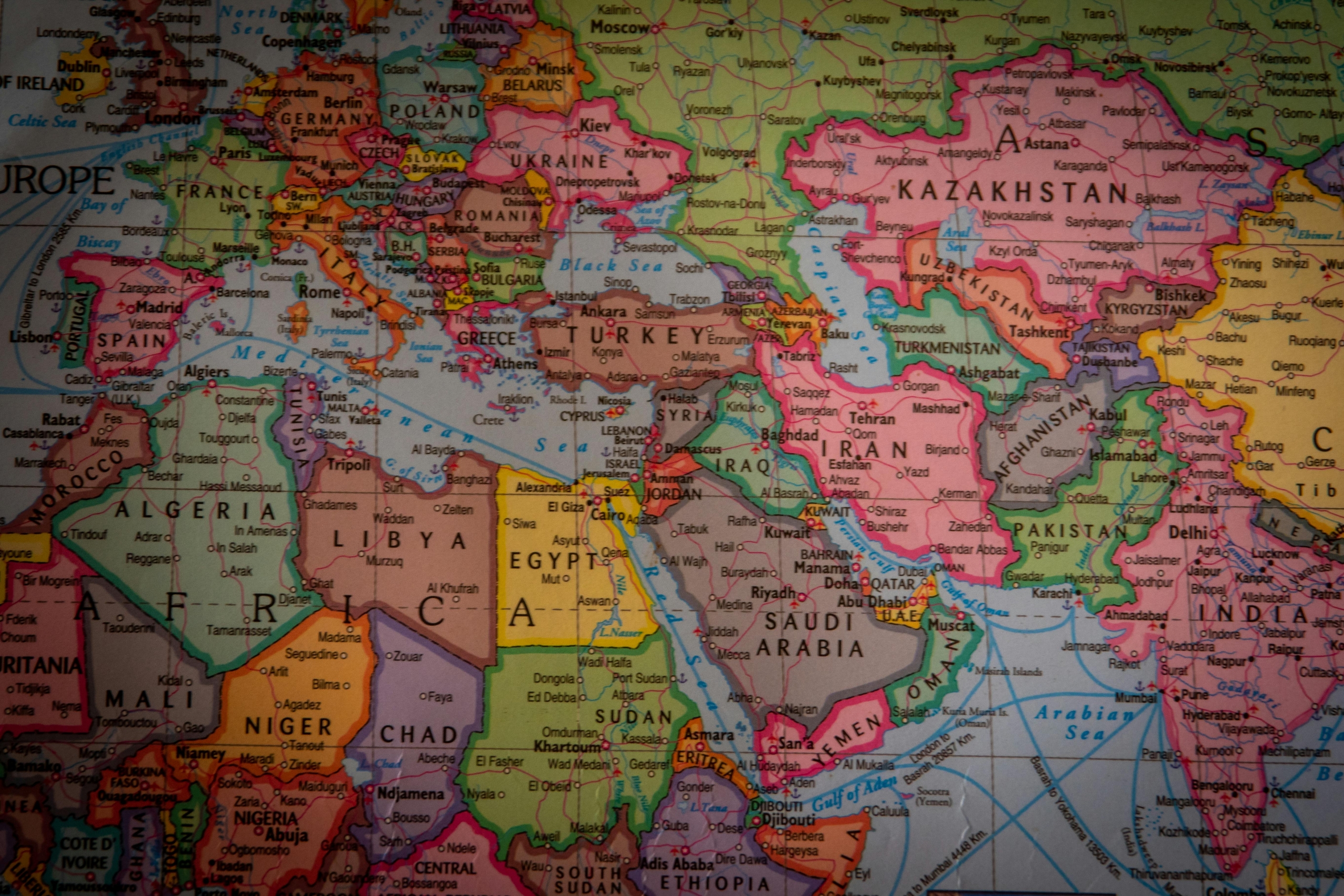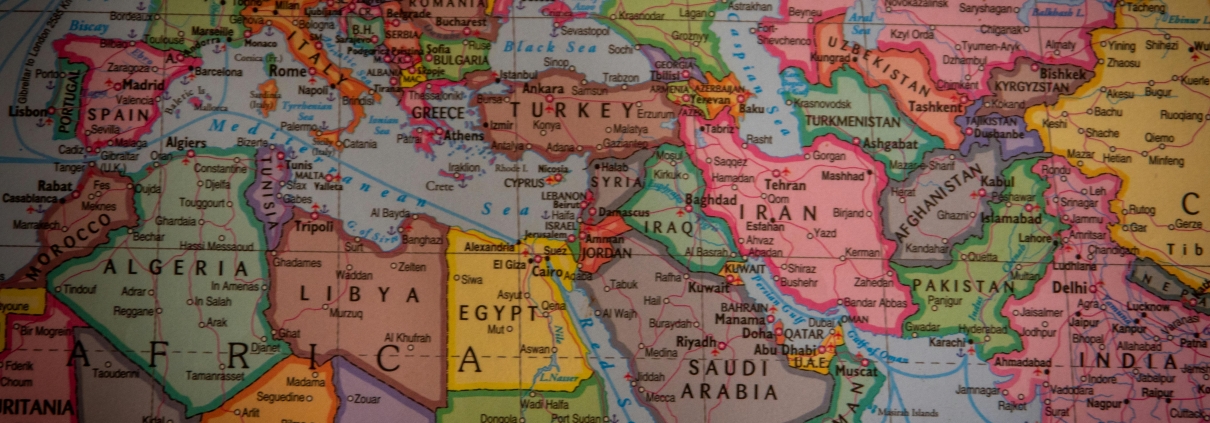Significant U.S. Sanctions Relief for Syrian Arab Republic
Summary:
Situation Overview: Under President Trump’s direction, the United States is rolling back decades-old sanctions on Syria.
What: On May 13, President Donald Trump announced at the Saudi-U.S. Investment Forum that he “will be ordering the cessation of sanctions on Syria in order to give them a chance at greatness.”
Who: Many Syrian political and businesspersons will now be capable of transacting with U.S. persons without penalty from the U.S. government.
In Depth:
The United States had imposed layers of sanctions on Syria since deeming it a State Sponsor of Terrorism in 1979. The U.S. Treasury imposed most sanctions during the Iraq War and the Syrian Civil War. In December 2024, Hay’at Tahrir al-Sham (HTS), then a U.S. designated Foreign Terrorist Organization (FTO), led an offensive that toppled the incumbent Assad regime, a hereditary dictatorship that had ruled Syria since 1971. Discussions quickly arose within the broader international community of how to engage the new Syrian government. According to President Trump, requests by Turkish president Recep Tayyip Erdoğan and Saudi Arabian Crown Prince Muhammad bin Salman encouraged his decision to offer sanctions relief. The most recent relaxation of U.S. sanctions on Syria is unique, as it is rare that a sanctions program is undone so broadly in such a short period of time.
U.S. Sanctions on Syria:
The United States had sanctioned Syria primarily through the following Executive Orders (E.O.s):
E.O.s relating to the Iraq War:
- E.O. 13338 (May 11, 2004): Declares a national emergency, imposes sanctions on certain Syrian persons; restricts U.S.-Syria travel; and instates some export controls.
- E.O. 13399 (April 25, 2006): Sanctions additional Syrian persons.
- E.O. 13460 (February 13, 2008): Sanctions additional Syrian persons.
E.O.s relating to Syrian Civil War:
- E.O. 13572 (April 29, 2011): Sanctions additional Syrian persons.
- E.O. 13573 (May 18, 2011): Sanctions senior Syrian government officials.
- E.O. 13582 (August 17, 2011): Sanctions the Syrian government and prohibits new U.S. investment in Syria, U.S. services to Syria, and U.S. business dealings with Syria’s petroleum industry.
- E.O. 13894 (October 14, 2019): Declares a national emergency due to “the campaign to defeat the Islamic State of Iraq and Syria.” Sanctions certain Turkish government officials, human rights abusers, and others.
The U.S. Congress added to these sanctions with the Caesar Syria Civilian Protection Act of 2019 (Caesar Act.)
Initial Sanctions Relief
Following the fall of the Assad regime in December 2024, the Biden-era U.S. Treasury issued General License No. 24 (GL 24), easing sanctions on critical public services, some energy-related transactions, and non-commercial remittances.
The Trump administration supplemented GL 24 with GL 25 on May 23, permitting transactions with the Syrian government, removing 28 persons (including Syrian President Ahmed al-Sharaa) from the Treasury’s Specially Designated Nationals and Blocked Persons list (SDN List), providing a 180-day Caesar Act waiver, and allowing U.S. financial institutions to maintain correspondent accounts at the Commercial Bank of Syria and transact with the Central Bank of Syria.
Relaxation of U.S. Sanctions
On June 30, President Trump signed E.O. 14312, revoking all of the aforementioned E.O.s except E.O. 13894. E.O. 14312 amended E.O. 13894’s national emergency to preserve the ability to sanction Bashar al-Assad, his associates, and “other destabilizing actors.” Correspondingly, the U.S. Treasury’s Office of Financial Asset Control (OFAC) changed the Syria-related sanctions program to the “Promoting Accountability for Assad and Regional Stabilization Sanctions Program.”
Easing of Non-Sanction Trade Barriers
E.O. 14312 recommends a further review of Caesar Act sanctions, relaxes certain export controls, and directs U.S. officials to seek broader sanctions relief for Syria at the United Nations. It also directs relevant agencies to review the designation of HTS as an FTO (a designation revoked on July 8), of Ahmed al-Sharaa as a Specially Designated Global Terrorist, and of Syria as a State Sponsor of Terrorism (SST).
Expectations Undergirding the Relief
E.O. 14312 states that this sanctions relief is granted on the expectation that the Syrian government “will not offer a safe haven for terrorist organizations and will ensure the security of its religious and ethnic minorities.” Should Syria not meet this expectation, the United States could quickly reimpose sanctions through the revocation of General Licenses and Caesar Act waivers as well as SDN List updates.
Alternatively, the U.S. government could reward progress through a greater easing of export controls, further removals from the SDN List, and the revocation of Syria’s SST designation.
Sanctions Policy “Best Practices” and U.S.-Syria Relations
The Syria sanctions rollback aligns with principles for sanctions articulated by former Treasury Secretary Jacob Lew and reinforced in practice by Secretaries Steven Mnuchin and Janet Yellen, namely: 1) broad support is best, 2) the United States must be prepared to offer sanctions relief if it wants countries to change their behavior, and 3) implementation is vital.
In this instance, the U.K. and EU began offering sanctions relief to Syria in the same timeframe, the United States reversed long-standing policy, and E.O. 14312 outlined specific benchmarks and implementation guidance.
Put Patomak’s Expertise to Work
As U.S. trade and sanction policy changes rapidly, firms must regularly assess their vulnerabilities and opportunities amid these changes. Patomak has deep expertise in U.S. economic security policy, including authorities under the U.S. Treasury’s Office of Foreign Assets Control (OFAC) and Committee on Foreign Investment in the United States (CFIUS). If you would like to learn how Patomak can partner with you to navigate these and other areas, please reach out to Senior Advisor Andy Baukol at abaukol@patomak.com or Partner Robert Greene at rgreene@patomak.com.





